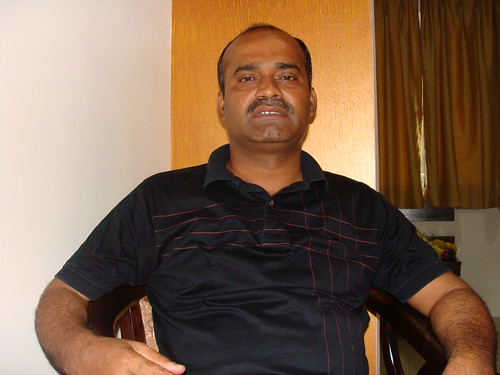By Mumtaz Alam Falahi, TwoCircles.net,
If the Women Reservation Bill is passed by Parliament in its present form, not only Muslim male political leadership will be wiped out but there will be zero representation of Muslim community in legislatures at national and state levels. Three eminent and vocal Muslim Members of Parliament, Ejaz Ali, Sabir Ali (two were suspended from Rajya Sabha on the issue last week) and Asaduddin Owaisi talked to Mumtaz Alam Falahi of TwoCircles.net to say why they are opposing the bill which will give 33% seats to women without any sub-quota for Muslim or other backward community women.

Asaduddin Owaisi, Member of Lok Sabha from Hyderabad (MIM)
Why are you opposing the Women Reservation Bill?
Ejaz Ali, Member of Rajya Sabha, from Bihar (JD-U): We are opposing this because this has been prepared with particular aims and objectives. Though they say they want women’s empowerment through this bill, in fact they want dominance of dominant sections of the society both in Parliament and state legislatures. Parliament and Legislatures should represent all sections of the society. At present, 60% of Members of Parliament are capitalists, 20-22% belong to Scheduled Castes and Scheduled Tribes. Rest 17-18% belong to the downtrodden section of the society including OBCs and Muslims. Muslims constitute about 15-20% of the population and OBCs 52% of the population. Muslims are just 5% in Parliament and none from the community is in several state assemblies. OBCs and Muslims deserve political reservation. Mandal Commission had recommended political reservation for OBCs, but the government has done nothing. At least 27% seats should be reserved for OBCs (which consist of backward sections of Muslims, Hindus, Sikhs and others) in the Parliament.
Sabir Ali, Member of Rajya Sabha, from Bihar (LJP): Through this bill, only women of creamy layer people and politicians will get elected because today without money and muscle power one can’t get elected to the Lok Sabha. When today it is difficult for Muslim men (as the community lacks money and muscle power as a whole) to get elected, how will their women reach Lok Sabha? The bill will bring Muslim representation in the House to zero. We are not against women reservation as per se, but we want quota for Muslim women in it.

Sabir Ali, Member of Rajya Sabha, from Bihar (LJP)
Asaduddin Owaisi, Member of Lok Sabha from Hyderabad (MIM): We are not against political empowerment of women as such. We are against the present bill which does not talk about political representation of the most deprived sections of the society. If reservation is to be given it should be given to the most deprived sections of the society who have never been represented in the Lok Sabha or state assemblies. In the last 15 Lok Sabhas 7906 persons were elected, out of which only 14 were Muslim women while in total 542 women were elected. The representation of Muslim women is very abysmal and apathetic. That’s why we say if you are creating a quota for women, there must be a portion for Muslim women.
What portion of 33% quota for women should be given to Muslim women?
Ejaz Ali: This should be according to their population.
Sabir Ali: Quota to Muslim women should be proportionate to their population.

Ejaz Ali, Member of Rajya Sabha, from Bihar (JD-U)
Asaduddin Owaisi: We want a reasonable percentage because when there are already reservation for SC and ST and now 33% for women, how will Muslims be elected to Lok Sabha?
Do you think Muslim community is ready to push their women towards politics?
Ejaz Ali: Some ulema have said Muslim women should not go to politics. I don’t think this is a good suggestion. Our history of Islam says that women have never been kept out of activities of the society. They have been involved in the activities in Hijab. In Hijab they can come to Parliament, Assembly and Panchayat. They have taken part in Islamic wars.
Sabir Ali: I don’t think there is any restriction on Muslim women for going to politics. In the time of Prophet they have taken part in wars. Hijab is not compulsory, at least covering face. They can come in politics. They need to be educated.
Asaduddin Owaisi: Why not. My experience in Hyderabad and Andhra Pradesh is testimony to this. There is nothing wrong for Muslim women to come into politics. There are many Muslim corporators of Majlis Ittehadul Muslimeen in Hyderabad who wear Hijab. They are very modest in their way and at the same time, they are working very hard in solving people’s problems. I don’t think religion stops them from representing people and solving out their problems.
Do you think by this bill Muslim male political leadership will be wiped out?
Ejaz Ali: Yes, 100% sure. Muslim male political leadership will be wiped out.
Sabir Ali: Yes, there is conspiracy to wipe out Muslim male political leadership.
Asaduddin Owaisi: It is not that Muslim male political leadership will be wiped out. In fact we will not have any sort of political representation in the Lok Sabha. To say that male Muslim political leadership will be wiped out is an understatement. That’s what we are worried about. I am not arguing because of this fear. I am not against women reservation. I just want that a portion of this should be reserved for Muslim women also. The concept of reservation is that it should be given to those who are not adequately represented.
Though my party is part of UPA, we will not support the bill at all if it is brought to the Lok Sabha in its present form. We will do whatever needs to be done keeping in view the national consequences. I have made it clear to main political leaders of UPA that I will not support the bill in its present form.

